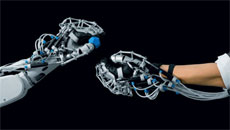What about listening to your favourite music via soft and green moss!
Yes. The first functional FM radio has arrived which is powered by biological solar panels that incorporate the plant.
Named Moss FM, the radio is designed by University of Cambridge biochemist Paolo Bombelli and London-based product designer Fabienne Felder.
“In the same way that the solar panels harnesses the energy of light and delivers electrical power, Moss FM it does it by using biological material,” Bombelli was quoted as saying on BBC Radio 4.
It is also regarded as the first functional moss-powered object that requires more electricity than a liquid-crystal display.
How does it work?
A frame holds 10 moss pots that are connected to form a “photo microbial fuel cell”.
The biochemical process in the fuel cell harnesses the electrons and protons produced by photosynthesising plants - turning them into an electrical current.
Currently, the moss pots produce a potential of more than 4.5 volts.
In the first experiment, the radio played for a minute and 20 seconds.
According to Bombelli, other plants and algae could also be used.
The scientists are now working on to improve the process so that the radio can be played for longer periods.


